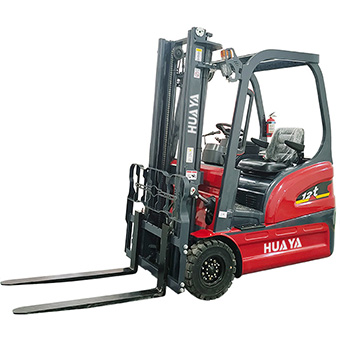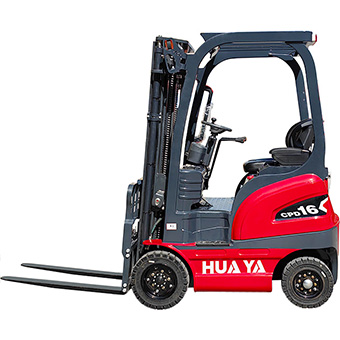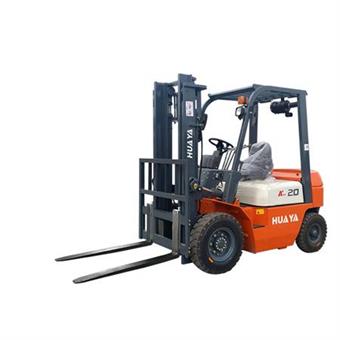
News
When it comes to purchasing or using a forklift, one of the most crucial considerations is its weight. The weight of a small forklift can impact everything from transport costs to floor loading limits and operational efficiency. Understanding how much a small forklift weighs, the factors that influence its weight, and why this is important can help you make more informed decisions.

In this blog post, we will the average weight of small forklifts, the factors that affect this weight, and why it matters in your operations. We will also address common FAQs and provide a comprehensive conclusion to tie everything together.
Before diving into the specifics of weight, it's important to define what we mean by a "small forklift." Generally, small forklifts are those with a capacity ranging from 1 to 5 tons. These forklifts are commonly used in industries such as warehousing, retail, and small-scale manufacturing where heavy-duty lifting is not required. Their compact size and maneuverability make them ideal for indoor operations and tight spaces.
The weight of a small forklift can vary based on several factors, including its type, design, and the materials used in its construction. On average, a small forklift typically weighs between 3,000 to 10,000 pounds (1,360 to 4,536 kg). However, this range can differ depending on the specific model and its intended use.
For example, a standard 3,000-pound capacity forklift may weigh around 5,000 pounds, while a 5,000-pound capacity forklift may weigh closer to 9,000 pounds. It's important to note that the weight includes the forklift's chassis, battery (in the case of electric forklifts), and other essential components.
Several factors influence the weight of a small forklift. These include:
Electric Forklifts: Typically, electric forklifts weigh more than their internal combustion (IC) counterparts due to the weight of the battery. The battery alone can account for a significant portion of the overall weight.
Internal Combustion Forklifts: IC forklifts, which run on diesel, gasoline, or propane, generally weigh less than electric forklifts because they don't carry a heavy battery. However, the engine and fuel tank add to their overall weight.
The higher the lifting capacity, the heavier the forklift. A forklift designed to lift heavier loads requires a more robust frame, counterbalance, and components, which adds to the overall weight.
Forklifts made from heavy-duty steel will naturally weigh more than those constructed from lighter materials. However, the durability and strength provided by steel are often necessary for long-term use.
Forklifts equipped with additional attachments, such as side shifters, clamps, or special forks, will weigh more than those with standard configurations.
The counterbalance is a critical component that ensures the forklift remains stable while lifting loads. The size and weight of the counterbalance contribute significantly to the overall weight of the forklift.
Understanding the weight of a forklift is essential for several reasons:
When transporting forklifts, especially over long distances, knowing their weight is crucial for planning the logistics, including the type of transport vehicle needed and compliance with road weight limits.
If your operations are conducted indoors, it's vital to ensure that the floor can support the weight of the forklift plus its load. Exceeding floor loading limits can lead to structural damage and safety hazards.
A heavier forklift may be less maneuverable, especially in tight spaces. Understanding the weight of your forklift can help you determine if it is suitable for your operational environment.
The weight of the forklift affects its stability, particularly when lifting heavy loads. A heavier forklift with a proper counterbalance is less likely to tip over, enhancing workplace safety.
A: A 3,000-pound capacity forklift typically weighs between 4,000 to 5,000 pounds, depending on the type and additional features.
A: Not necessarily. While a heavier forklift can provide better stability, it may not be as maneuverable in tight spaces. The best choice depends on your specific operational needs.
A: Electric forklifts generally weigh more than internal combustion forklifts due to the added weight of the battery. The difference can range from a few hundred to several thousand pounds.
A: It depends on the weight of the forklift and the trailer's capacity. Always check the trailer's weight capacity and ensure it complies with road regulations before transporting a forklift.
A: The lightest forklifts are usually electric models with a small lifting capacity, weighing as little as 3,000 pounds.
Understanding the weight of a small forklift is essential for safe and efficient operations. Whether you are planning to purchase, transport, or operate a forklift, knowing its weight can help you make informed decisions that enhance productivity and safety. Keep in mind the factors that influence forklift weight, such as type, lifting capacity, and construction materials, to choose the right forklift for your needs.



